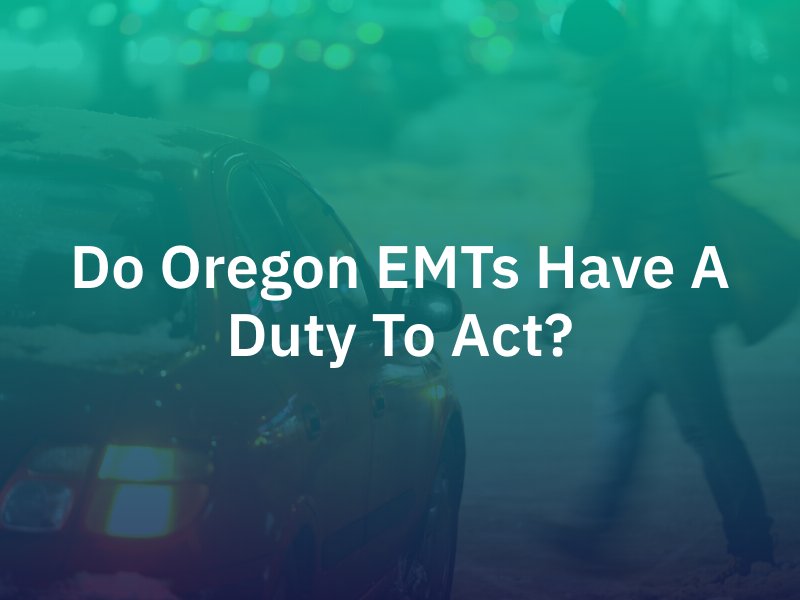Do Oregon EMTs Have A Duty To Act?
Posted on June 3, 2020 in Portland Personal Injury Lawyer
Emergency medical professionals in Oregon have incredibly difficult jobs, and we are thankful for every single one of them. Most people do not realize that there are four levels of EMT licensure in Oregon: EMT, Advanced EMT (AEMT), Oregon EMT Intermediate, and Paramedic. At each level, professionals have varying levels of responsibility when they are on duty. However, what responsibility does an EMT in Oregon have to act if they witness an emergency medical situation when they are not on duty? The idea of whether or not EMTs are always on call has long been debated in the United States.

A duty to act when off-duty?
For a moment, we should consider a scenario that could happen. A paramedic has completed her shift and makes it quick stuff to the bank before heading home. The paramedic is still in uniform when she witnesses an elderly woman fall to the floor, seemingly unconscious.
Does the paramedic have a legal duty to act in this scenario?
In general, the answer is no. EMS professionals generally only have a legal duty to provide care for patients while they are performing within the scope of their job duties (aka, when they are at work). When they are off duty, regardless of whether or not they are in uniform, there is generally no legal duty to care for a patient.
Under tort law requirements, there are four elements that must be present in order for someone to be held legally responsible for a personal injury or wrongful death:
- A legal duty to act
- A breach of their duty
- The breach of duty pausing a plaintiff’s injury
- The plaintiff sustaining actual damages
In the situation we described above, and for every EMT who is off-duty, the first element of negligence will not even be present, therefore likely ending any possibility of a person holding them accountable for not responding to an incident they witness.
While the “court of public opinion” may frown upon an EMT not acting to help an injured or ill patient when they are off duty, a court of law is very unlikely to hold them liable for their failure to act.
What if the EMT does act? Can they be held liable if they harm someone?
If an EMT does choose to render patient care to someone when they are off duty, then they will generally not be held liable for any further injuries they may cause to a patient so long as they perform care that is within the scope of their training. For example, an EMT may have the training to perform CPR and use an automated external defibrillator (AED), but not to give a patient an IV or other advanced procedure. If they are rendering care, they need to stick with the training they have received.
In general, off-duty EMTs will be covered by Oregon’s Good Samaritan Law. This law states that “No person may maintain an action for damages for injury, death or loss that results from acts or omissions of the medically trained person while rendering emergency medical assistance unless it is alleged and proved by the complaining party that the acts or omissions violate the standards of reasonable care under the circumstances in which the emergency medical assistance was rendered.”
Even with Oregon’s Good Samaritan law in place, some EMTs do choose to carry individual liability insurance should situations like this arise, and they choose to render care.
Call us today to speak with a Portland personal injury lawyer.
